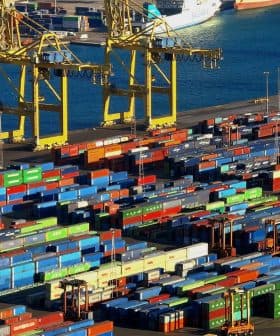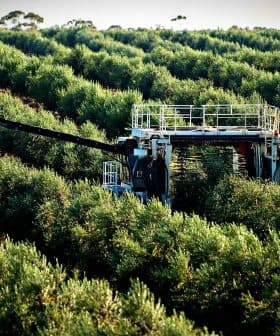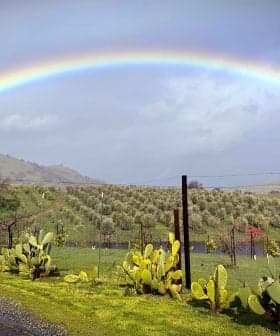Winners and Losers in the Growing American Market for Bulk Imports
Some exporters have been able to take advantage of the growing American demand for bulk olive oil.
Bulk olive oil imports to the U.S. are increasing, with Argentina and Turkey experiencing significant increases while Tunisia and Morocco saw decreases, partially due to poor crops in Spain. The increase in exports from Argentina and Turkey is attributed to government policies and modernization, while the decrease in exports from Tunisia and Morocco is linked to quality issues and drought.
Bulk olive oil imports to the United States are on the rise. The world’s largest olive oil importer increased its demand for containers weighing 18 kilograms or more by 26 percent.
The poor crops in Spain in three of the past five years are driving interest in alternative sources of oil.
However, not all of the main exporters to the U.S. benefited from this shifting demand. Argentina and Turkey both experienced significant increases in exports, while Tunisia and Morocco saw substantial decreases.
Bulk exports from Argentina nearly doubled, while from Turkey exports increased more than five-fold. Uncertainty in Spanish supply, which exported 13,000 fewer tons of olive oil to the U.S. last year, helped to spur on these increases.
“The poor crops in Spain in three of the past five years are driving interest in alternative sources of oil,” Gregg Kelley, CEO of California Olive Ranch, told Olive Oil Times. “Argentina has benefited from changes in government policies making it easier to export, and Turkey has expanded their production capacity tremendously over the past 10 years.”
Ümmühan Tibet is the chairman of the board of Turkey’s National Olive Oil Council. He attributed these increases in exports to Turkey’s rapidly modernizing olive oil sector as well as increasingly strict quality standards.
“In Turkey, olive oil production has undergone remarkable developments since the 1980s and more olive oil plants have either started to produce virgin olive oil or increased their production capacity,” Tibet said. “Today, Turkey has large-scale olive oil plants with modern bottling lines.”
According to Tibet, Turkey has strict standards for olive oil destined for export. Since many Turkish oil exports are destined to the European Union, Turkish exporters have been meeting these high standards for years.
“There are compulsory export standards for olive oil and table olives in Turkey, thus, production in all plants conforms to the Regulations of Turkish Codex,” he said. “These regulations are also consistent with the International Olive Council Trade Standards and Regulations of the European Union,” he said.
Meanwhile, the increase in exports from Argentina has largely been attributed to President Mauricio Macri’s policies of economic liberalization. Macri removed currency controls, which prevented Argentine businesses from transacting domestically in foreign currencies, especially U.S. dollars. He also rescinded agricultural export quotas and began promoting trade and improved relations with the U.S.
“Timing was also good for Argentina. Before the changes in Argentina’s government, suppliers focused more heavily on the local market, but now they are able to look towards a more global level,” Jim Lipman, the vice president of product operations at California Olive Ranch, said.
“Quality is also a factor. The higher the quality of the oil, the more markets it can serve in the U.S. and, in turn, it will increase the volumes imported.”
© Olive Oil Times | Data source: International Olive Council
Meanwhile, bulk exports from Tunisia and Morocco decreased by 35 percent and 67 percent, respectively. American olive oil importers attributed both quality and drought to these decreases. According to importers, Tunisian and Moroccan olive oil generally do not rank well in terms of quality.
“Tunisia and Morocco had suffered from a drought. Because of that, they had a significant reduction of supply,” Lipman said. “Also, in those situations, they had lower quality oil which would limit the markets in the U.S. that it could serve.”
Sélim Belkhodja is the director of Bulla Regia, a Tunisian company that exports olive oil to the United States. He denied that quality is the issue and said that based on recent climatic conditions, olive oil exports would fluctuate.
“The quantities of olive oil exported by Tunisia depend on the yearly production,” he said. “And we have a big difference annually due to the weather conditions.”
According to the International Olive Council, however, bulk imports to the U.S. from Tunisia have decreased in four of the past five years.
The Tunisian Ministry of Economy offered an alternative explanation to those of Lipman and Belkodja. A spokesperson from the ministry said that Tunisia was looking toward emerging olive oil markets in the Gulf, but was also quick to denounce the aspersions of the quality of Tunisian olive oil.
“The Middle East, notably Qatar and Saudi Arabia, is considered among the most attractive zones for Tunisia given the rising consumption trends,” the spokesperson said. “This is undoubtedly due to the fact that olive oil exporters have managed to meet the challenge of quality by incorporating the latest technological breakthroughs and working on branding.”









